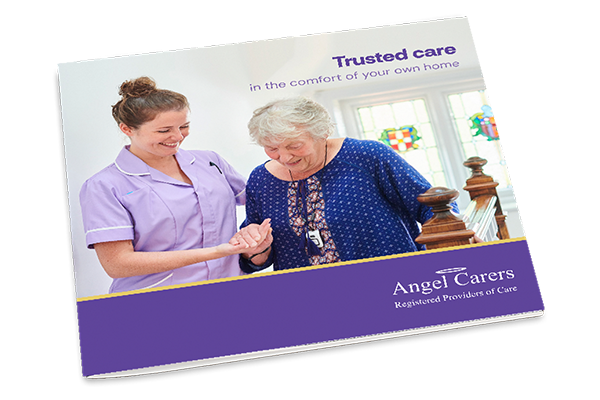Cost comparisons of caring for an elderly relative?

Paying for residential care can be a real struggle for many.
It’s not only about the money; you also want to know your loved one is in safe and sympathetic hands when you can’t be around.
In this guide, we will cover:
- How much is home care?
- Can my local council help?
- What is NHS Continuing Healthcare?
- What benefit support can you get?
Highlights from an article first published in The Times, Money Mentor – August 31, 2023. See full article – here
How much is home care?
The main support the person may be entitled to is home care, or domiciliary care as it is also known. This can cost about £26 an hour, depending on their location. If local authorities are paying for care at home the minimum rate recommended by the UK Homecare Association is:
- £25.95 an hour
- £28.78 in London
And the type of care should be as flexible as required, so you should consider whether it would be good to have care:
- By the hour
- By the day
- 24-hour live-in care
- Temporary
- Or permanent care
For a night-time care at home service, expect to pay a little bit more per hour – between £1 and £5 extra.
Cost comparison: home care vs care home
Many people understandably want to stay in their own house, but it’s worth busting the myth that moving into a care home is always the most expensive option – it’s not.
Let’s take a look at the figures:
For 28 hours a week, at that rate of £25.95 an hour, home care will cost almost £37,800 a year on average. You also have to factor in specialist needs, which will affect the cost:
- If the person requires around-the-clock-care, a live-in service may be more appropriate and that usually costs between £41,000 and £65,000 a year.
- It can be upwards of £85,000 for those with more complex needs.
- By contrast, the average care home fee is about £39,480 a year, according to carehome.co.uk.
- This rises to over £49,920 if nursing care is required.
Bear in mind that residential care home fees do vary widely around the country and between care homes. London and the southeast of England, is the most expensive region for residential elderly homes in the UK. You can expect to fork out over £6,000 more than the national average. Either way, any type of care isn’t cheap.
Getting financial help from your local council
If you want financial help from your local council, you’ll need to get the person’s condition officially assessed. The care needs assessment is free and can be carried out on the phone, online or face-to-face. Your local council will then sort out any homecare, but not necessarily the care home fees.
The amount of funding you get depends on any savings and assets and where the person lives in the UK:
- If the person lives in England or Northern Ireland, then you will only get financial help towards home care if you have less than £23,250 in savings
- In Scotland the savings threshold is £29,750
- For Wales it is £24,000
The person’s home won’t be taken into consideration in the financial assessment unless they move into permanent residential care. If the local council agrees to pay some or all of the costs, these will be set out in a care and support plan along with a plan on how any specialist support will be met.
NHS continuing healthcare
Some people may be eligible for NHS continuing healthcare. This is a little-known scheme where older people with complex or unpredictable long-term care needs can qualify for completely free care, regardless of their income and assets.
It requires an assessment by a team of healthcare professionals. The outcome depends on individual needs and not on any particular diagnosis or condition. Speak to a doctor or nurse for more information. Here, one reader explains how his family got a £90,000 refund in care fees through NHS continuing healthcare.
What benefit support are you entitled to?
When you know the level of care needed and the amount it will cost, you need to figure out how you will pay for it. First, check what benefits the claimant is entitled to. Some, such as attendance allowance and personal independence payments, aren’t means-tested and they can help meet the costs of homecare:
- Attendance allowance – This is for those over state pension age who need help to stay independent at home because of an illness or disability. It is paid at two rates depending on personal needs: £68.10 a week or £101.75 a week. You may also get a £10 Christmas bonus.
- Personal independence payment – To help with some of the extra costs of long-term ill health or disability for those aged between 16 and state pension age. PIP is made up of two parts: daily living and mobility, and each can be paid at either a standard or enhanced rate, with the total someone can receive ranging from £26.90 to £101.75 a week. The amount depends on how the condition affects the person and not the condition itself.
- Carer’s allowance – This would be for friends and family members who decide to spend at least 35 hours a week providing care for the person (as long as they are in receipt of a disability benefit). It is currently set at £76.75 a week and you can keep working.
Check out the NHS list of other benefits for the over 65s. By the way, we have lots more useful information in How to care for your ageing parents: a financial guide.
Other funding options
Once you know how much of a shortfall you need to make up, you can look at other funding options. These include:
- Savings
- Investment income
- Property, such as downsizing, equity release, or renting out a spare room
- Insurance, such as critical illness cover, long-term care annuity or care home annuity
- Deferred payment scheme from your local council
- Family and friends
Care costs can escalate, with a bill exceeding £100,000 not being unusual. So, before you set out on self-funding, it’s a good idea to speak to a financial adviser.





